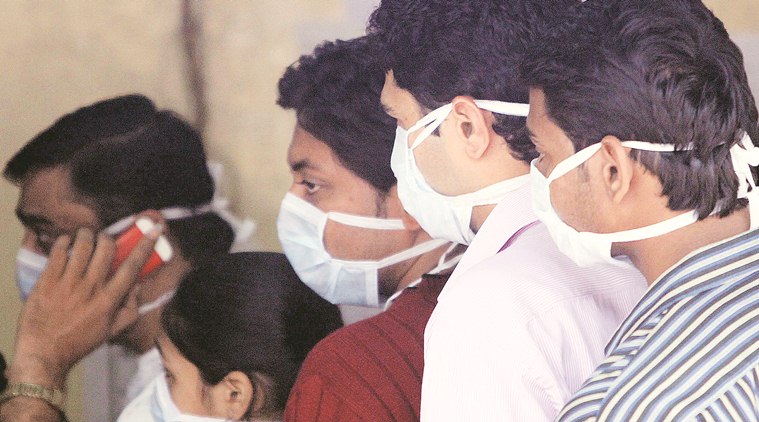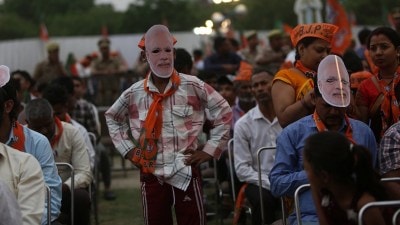- India
- International
Gujarat: One case of Chandipura virus infection detected, health officials on alert
In 2014, the virus infection led to four deaths, including that of a seven-year-old boy and a six-year-old boy and two 11-year-old girls from various villages in Dahod's Devgadh Baria.
 After the test results of the five-year-old girl came up positive for the virus, health officials in Dahod and Vadodara are on alert. (Express photo/Representational Image)
After the test results of the five-year-old girl came up positive for the virus, health officials in Dahod and Vadodara are on alert. (Express photo/Representational Image)
Four cases of suspected Chandipura virus infection have been reported in Dahod on Tuesday, two days after the blood samples of a five-year-old girl who died on June 30 tested positive for the virus. Of the four suspected cases, two children have already died while two others are under tertiary care, which is specialised medical care.
The CHPV virus, first discovered by two virologists of the Pune-based National Institute of Virology (NIV) in 1965, predominantly infects children. It was named Chandipura virus after the town in which the discovery was made and the virus was first isolated in Maharashtra. The symptoms include sudden high fever accompanied by headache, convulsions and vomiting, sometimes leading to unconsciousness.
“Of the four cases, two deaths were reported in June due to fever but the blood samples results are awaited from NIV Pune to confirm whether they were deaths due to the Chandipura virus,” Epidemic Officer of Dahod Dr Dilip Patel said. “However, they do fall under suspected cases due to the symptoms.”
Patel said all the suspected cases are of children below the age of 11, including one girl and three boys. None of the cases have been confirmed yet. “The other two children are undergoing treatment at present. So far no death attributed to the virus has been reported in the district,” he added.
After the test results of the five-year-old girl came up positive for the virus, health officials in Dahod and Vadodara are on alert. In 2014, the virus infection led to four deaths, including that of a seven-year-old boy and a six-year-old boy and two 11-year-old girls from various villages in Dahod’s Devgadh Baria. No more cases of fever have been reported in Vadodara.

Epidemic Officer Patel said houses are inspected and, with the help of health workers and even locals, cleaning activities are undertaken. Areas in the house where dust accumulates are cleaned out to destroy the breeding ground of sand flies.
“We conduct routine rounds of dusting in suspected areas and are also carrying out door-to-door fever surveillance and surveys,” Patel said. He said the public has been given a contact number on which they have been asked to provide information if a child is suffering from the symptoms.
Between 2010 and 2014, there have been a number of cases of the Chandipura virus infection and subsequent deaths, “but over the years the suspected cases had reduced and no deaths had been reported either”, Patel added.
Virus usually spreads during monsoon
The Chandipura Vesiculovirus (CHPV) spreads mainly through the bite of sand flies, and sometimes through mosquitoes. Animal studies show that the virus affects neurons and causes neurodegeneration. Sand flies are found in mud and sand houses and mostly breed in the cracks of such houses. Cases of Chandipura virus are mostly reported during monsoon and pre-monsoon months, when the sand flies breed.
As a precautionary measure, people have been advised to continuously clean their homes, and health officials conduct routine dusting programmes to destroy the breeding dens of sand flies.
The majority of infected patients are children aged below 14. The last cases reported in Gujarat were in 2014, when four children children aged between five and 14 succumbed to the virus. In 2010, 29 suspected cases were reported of which 17 children succumbed to the virus, all from Kheda, Panchmahals and Vadodara.
Based on the symptoms, doctors recommend a blood test. The samples are sent to NIV Pune, which confirms the presence or absence of the Chandipura virus. It takes between 10 and 15 days to get the test results. There is no specific medicine for its treatment. However with timely detection, hospitalisation and symptomatic treatment is given to the patient, which could help save lives.
Apr 25: Latest News
- 01
- 02
- 03
- 04
- 05






























